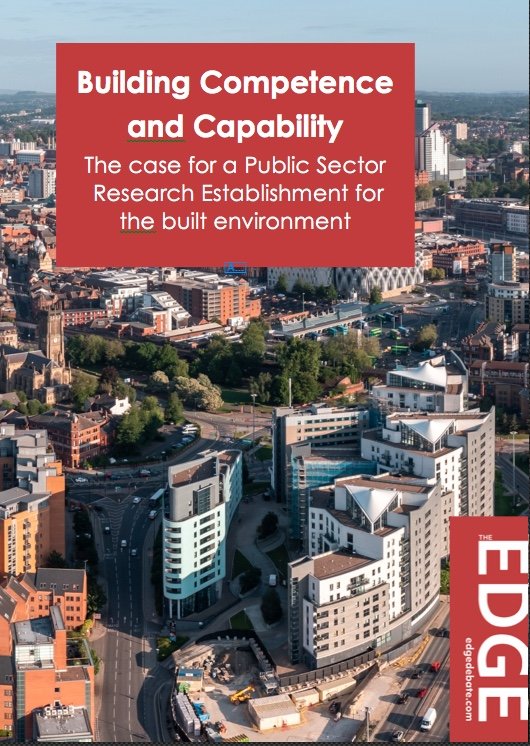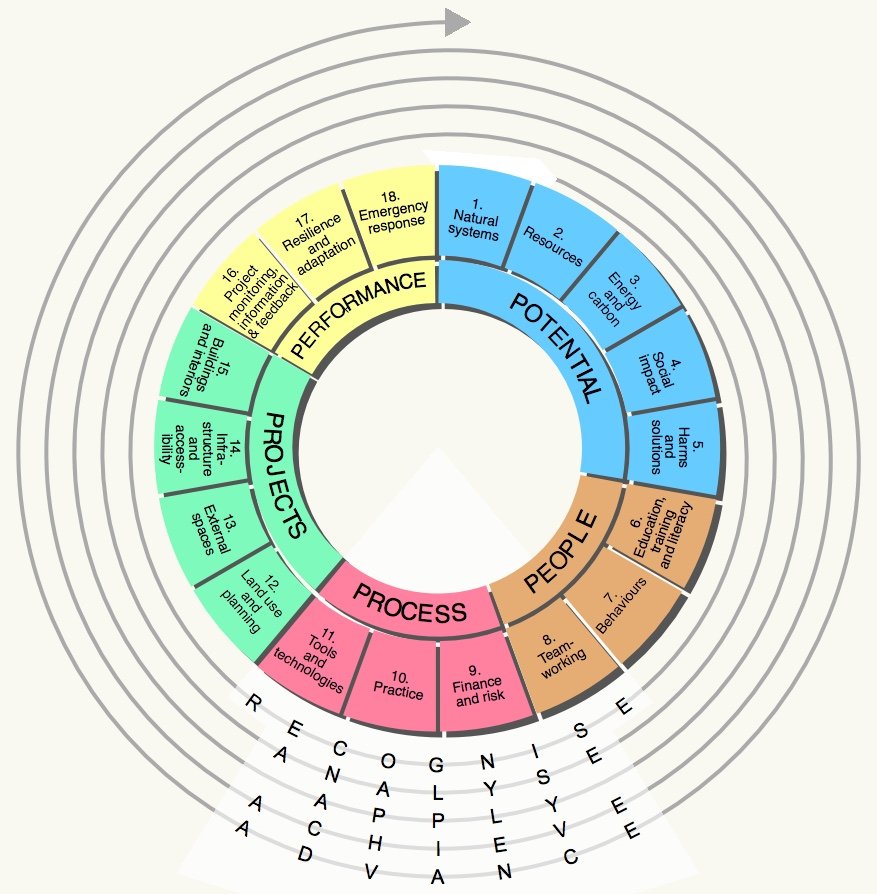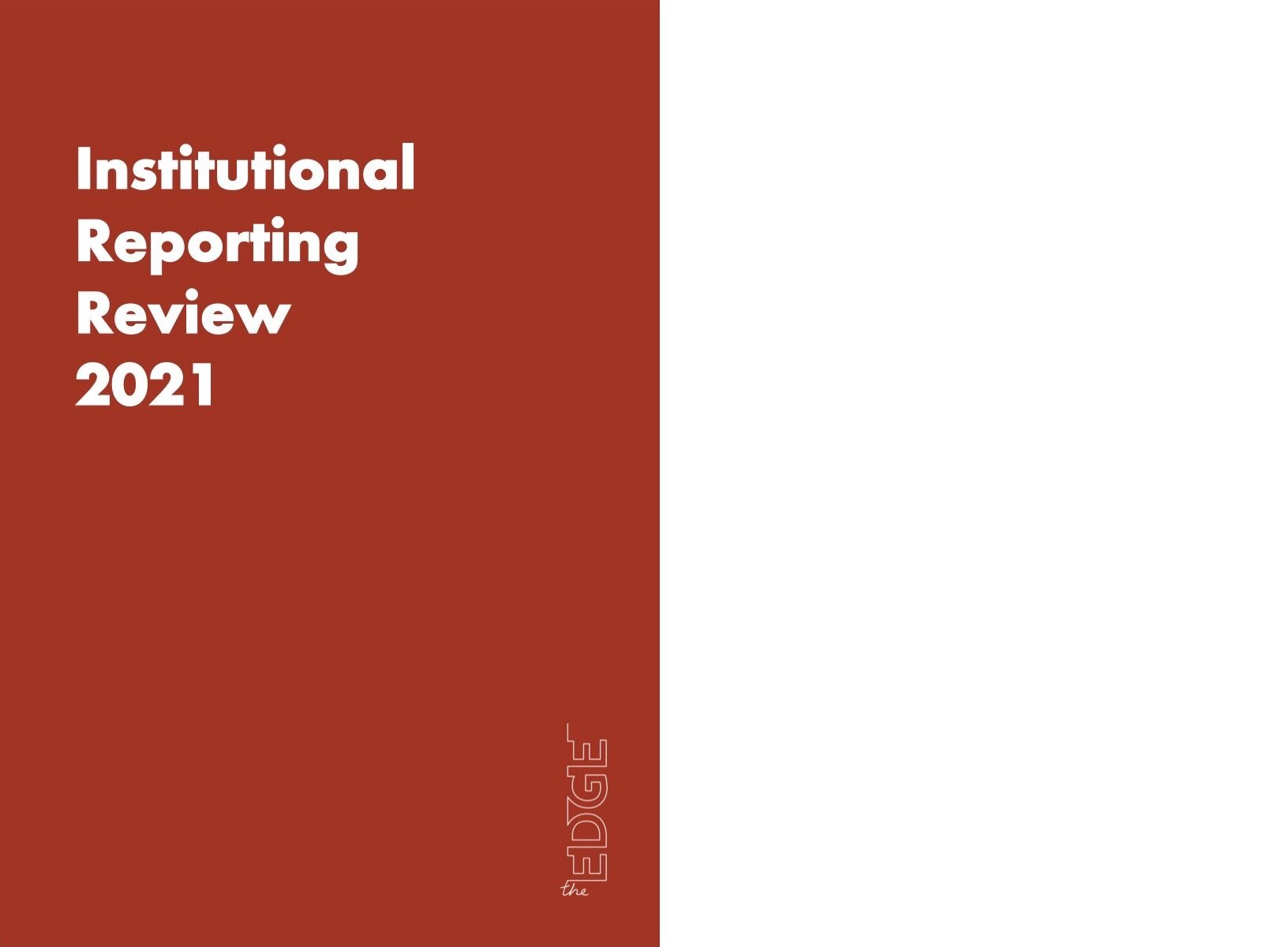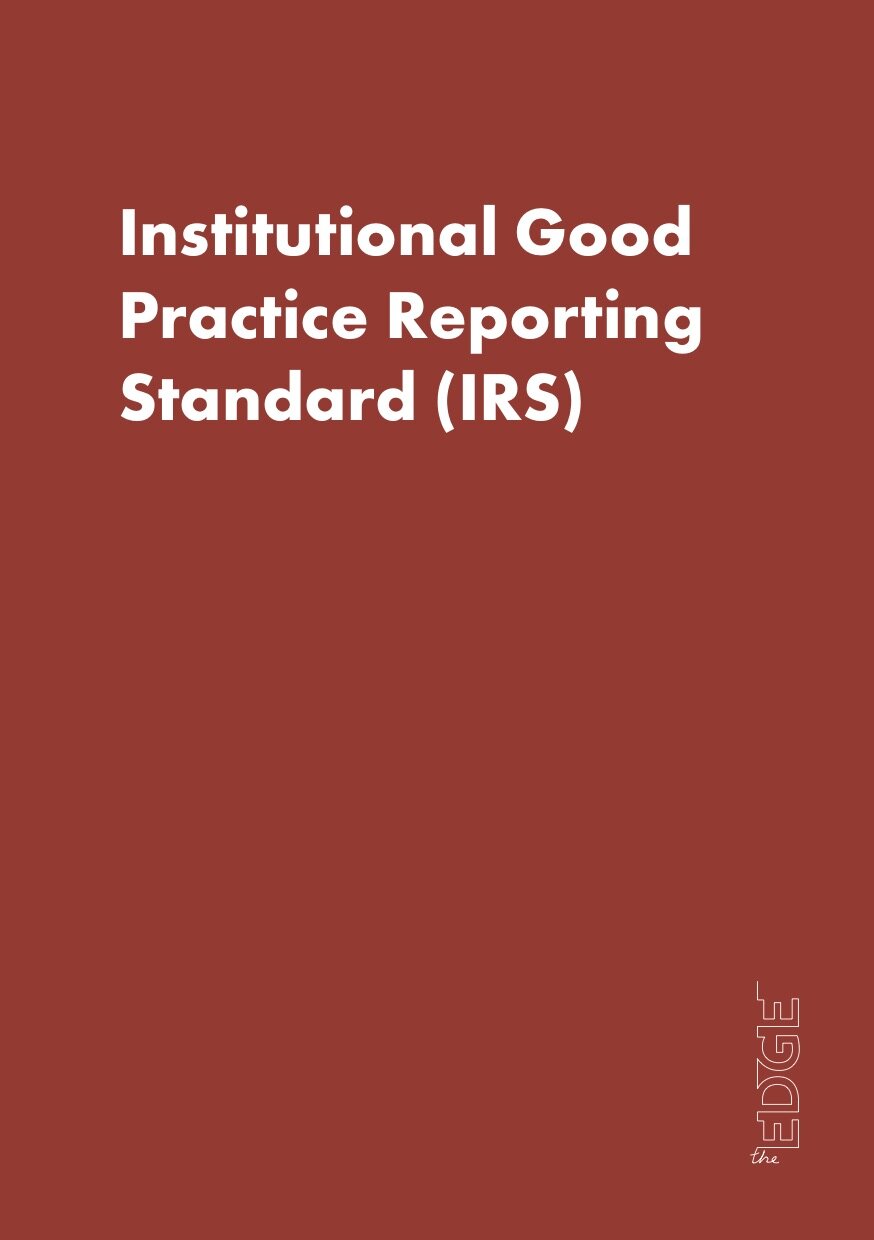Edge Publications
Edge Reports & Guidance
Competence Framework for Sustainability in the Built Environment - February 2025
the Edge and the Construction Industry Council (CIC) have jointly published the ‘Competence Framework for Sustainability in the Built Environment’, a foundation for discipline-specific sustainability competencies. Drafted as a Seed Document for a future British Standard in the BSI’s Competence in the Built Environment series, it builds on BS 8670: Part 1 (Competence for Building Safety, 2024). Developed under Workstream 10 of CIC’s Climate Action Plan, the framework was coordinated by the Edge, with support from UCEM, through extensive cross-sector consultation.
The framework aims to:
a) Establish core sustainability criteria,
b) Enable sector-specific competence frameworks, and
c) Promote a consistent approach across the built environment.
Designed for clients, professionals, contractors, manufacturers, and regulators, the framework defines sustainability through five core criteria: Potential (natural systems, resources, energy, and social impact); People (education, behaviour, and teamwork); Process (finance, risk, and technology); Projects (land use, infrastructure, and buildings); and Performance (monitoring, resilience, and emergency response). It also sets out five competence stages: Recognise, Analyse, Apply, Achieve, and Advance.
Building Competence and Capability - The case for a Public sector Research Establishment for the built environment - (v9 - June 2024)
the Edge has published a call for action to create an independent, authoritative Public Sector Research Establishment (PSRE) for the built environment intended to help (central and local) government and industry to improve the quality, productivity and social value of the built environment through knowledge creation and knowledge transfer. and increase construction industry capabilities, foster innovation and reduce risk. We must grasp the political opportunity to tackle major issues of public health, social inclusion, climate change, safety and wellbeing in tandem with fostering economic growth and productivity and export potential. The latest version of the paper (v10- June 2024) is now available (download here) to encourage wider consultation and discussion
Proposed Competence Framework for Sustainability in the Built Environment
the Edge working with the CIC as part of its Climate Action Plan is developing a Competence Framework document for sustainability in the built environment (modelled on BSI Flex 8670: Built environment – Core criteria for building safety in competence frameworks - Code of practice). This is envisaged to help the construction and property sectors to urgently and effectively meet environmental obligations set out by national and international agreements as well as to follow best-practice guidance. This will be published as a ‘Seed Document’ , intended for eventual adoption as a British Standard. The Framework standard will encourage individual and specific competence frameworks to be developed across the industry that are consistent with each other and share a high degree of commonality, focusing on the skills, knowledge, experience and behaviours (SKEB) necessary for dealing with the pressing climate and nature emergencies.
A preliminary draft of the proposed Standard is being developed by a cross-industry Advisory Panel, but is also downloadable for comment
June 2024
the Edge has issued its second Institutional Reporting Review covering the transparency of information made available in institutions’ 2019 and 2020 Annual Reports (and occasionally other material). The information has been assessed against the Institutional Best Practice Reporting Standard published in 2019. The result has been a mixed bag with many institutions improving on their previous reporting but with a handful falling back or not reporting at all.
City 2040: An exploratory industry-led research initiative, scrutinising the future UK city of 2040
City 2040, the Edge’s research project developed in collaboration with Taylor Wessing and University College of Estate Management, sets out a vision of how UK cities can flourish amid changes that will benefit both the environment and the wellbeing of citizens - read more
Carbon Zero: the professional institutions’ climate action plan, June 2021
In June 2019, co-ordinated by the Edge , 25 built and natural environment organisations met at the RIBA with the Chair of the Committee on Climate Change, Lord Deben, to discuss the need for action in the face of climate change. Those attending agreed on an urgent and concerted response to achieving the UK’s 2050 net zero carbon emissions target; to continue to work together to establish shared standards and practice; and to continue to develop professional resources and capacity.
Since November 2019 the Edge has been working with the Construction Industry Council (CIC), professional institutions and built environment organisations to co-ordinate a Climate Action Plan for implementation across the industry. The outcome has been agreed to by 29 bodies and was published by the CIC on the 17th June 2021
Link to CIC Blog - Carbon Zero: the professional institutions’ climate action plan - Stephen Hodder MBE, Deputy Chair CIC, June 18th 2021
Collaboration for Change: The edge commission report on the future of professionalism
In 2014 the Edge invited Paul Morrell to chair a Commission of Inquiry into the future of professionalism in the built environment/construction industry. The Edge is very proud to launch the resulting report, which explores the key issues facing professionals and their institutions at this ‘moment for change’ and hopes you will join us in the discussion on this critical issue for the industry and its professional institutions.
“The Edge Commission Report on the Future of Professionalism – Collaboration for Change - provides valuable expert insights at a time of significant evolution of the construction professions, driven by societal, technological, economic and demographic change. The RIBA supports the general direction outlined in the Report. Indeed we and other professional institutes are already actively engaged on many of the issues that it identifies and in that context we welcome its publication” - Harry Rich, Chief Executive RIBA
Link to: Edge Professionalism Workstream
As a result of Collaboration for Change, the following initiatives aim to encourage better reporting standards amongst built environment institutions, a stronger code of conduct which reflects our civic duties towards society and the natural environment, and an ethical code which emphasises on our collective responsibility in addressing climate change in daily practice.
Institution good practice reporting standard
In order to encourage greater levels of transparency and openness within the construction industry, the Edge is encouraging the professional institutions and others to publish anonymised, consistent and comparable information on their organisations and membership in their annual reports.
The Standard recommends that this covers data on:
Individual membership;
Corporate membership;
Staffing;
Discipline;
Education;
Learned society & research activities; and
Public engagement.
Institutional Reporting Review 2019
In preparation for publishing the Institutional Good Practice Reporting Standard the Edge has carried out surveys assessing reporting practice in the Annual Reports and Equality Act reports of the CIC member organisations operating under Royal Charters, covering the years ending 2012 and 2017. In 2017 there were 17 such organisations and the same group has been surveyed as a comparator for 2012. The Review reports on the data for the 7 topics outlined in the Standard and the degree of reporting on these across the 17 organisations.
It is proposed to publish a short form review on an annual basis.
Draft model code of Conduct
In response to recommendation A-1 in the Edge Commission of Inquiry report, Collaboration for Change, the Edge has produced a draft model Code of Conduct exploring the potential for an effective code that could be widely used across the construction industry professional institutions.
The Model Joint Code of Conduct:
is intended to be illustrative rather than definitive
is drawn and adapted from other codes, including: Society of Construction law, RIBA, ARB, EC-RAE, ICE, RICS, CIAT, CIBSE, CIOB, IStructE, LI, RTPI, International Ethics Standard, Nolan, Deloitte, Atkins and Arup - plus the new professionalism code prepared by Edge member, Bill Bordass.
is based on whom duties are owed to. This came out of the findings of the Edge Commission, which identified the high levels of confusion on whom or what professionals should be responsible to/for. It is intended to bring greater clarity although it does mean a certain degree of repetition
should be accompanied by guidance notes and examples that will be particular to each institution
doesn’t include institutional housekeeping items or disciplinary procedures, which should be located in individual institution’s regulations, by-laws or guidance notes.
See also the accompanying draft proposed Professional Compact below.
draft professional compact
The Edge is proposing a text that outlines the relationship between professionals in the Construction industry and those who are commissioning their services
It should be read in conjunction with the accompanying draft model Code of Conduct above.
PROFESSIONAL COMPACT
Professionals in the construction and property sectors will deploy:
expertise, skill, knowledge and experience to deliver agreed services in good faith
competence, diligence, honesty, integrity and care;
evidence-based judgement to achieve high standards of work and conduct,
Subject to the obligation to:
put the interests of the wider world and society first and to take protective action when necessary, but otherwise to put clients’ interests before their own;
take personal and corporate responsibility for the outcomes of their work;
show proper care, consideration and fairness towards others, especially those involved in realising projects and those who will live with the outcome;
keep their own knowledge relevant and up to date;
train and help develop the abilities of other members of both their profession and society;
measure, feed back and share relevant information and insights gained from their work in order to develop and improve knowledge and skill across the disciplines.
In exchange for:
the trust of those commissioning services;
recognition of their independence and right to self-direction;
the grant of respect and status;
a degree of exclusivity over the provision of socially important services;
fair payment for their work.
Edge Pledge
In 2007 the Edge developed a simple to use family and personal carbon dioxide emissions spread-sheet known as ‘The Edge Pledge’. The Pledge gives single or multi-users a rapid indication of the scale of their current personal ‘primary’ carbon (strictly CO2) footprint — arising from home energy use and travel (excluding business and secondary carbon).
Several Edge members have used this in their workplace, work group, institutions or with groups of friends. Everyone gets to see where they currently ’spend’ it — in comparison with friends and colleagues! It makes the carbon big-picture visible.
(’It’ being carbon — the currency of the 21st century!)
Although many people now know what a carbon footprint is, a surprising number have yet to look at their own feet. Commonly, the primary footprint per adult can be 5, 10, 20 tonnes. The scale of our personal (invisible) contribution to the global ‘air-fill’ dump can be an eye-opener. In contrast the average land-fill per UK household is 1 tonne.
Download the Edge Pledge Spreadsheet (Excel)
Download some additional instructions (Word)
For further help contact the Carbon Coach, Edge member Dave Hampton at dave@carboncoach.com










